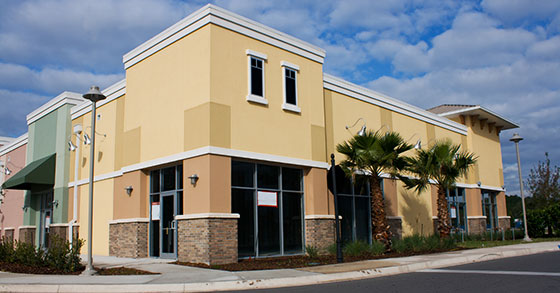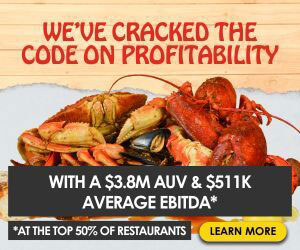For Sale!: Ensuring a Successful Business or Property Sale

Corporations are holding record levels of cash, interest rates are low and the housing market is rebounding. The result? Merger and acquisitions professionals are buying more businesses and high-end homes are selling faster - Silicon Valley had a 26 percent increase in sales of $1.5 million-and-up houses in the first half of last year.
If you're considering selling a business or property in 2014 - while business is good and before mortgage rates climb - keep in mind: Focusing only on the price can short-change you in the long run. "A lot of sellers are rushing to close the deal because they're worried about what may be around the corner," says attorney John Hartog of Hartog & Baer Trust and Estate Law. "My first rule: Sell smart, not fast."
Sales of commercial properties were up 11 percent in the third quarter of last year, notes wealth management advisor Haitham "Hutch" Ashoo, CEO of Pillar Wealth Management. "These sales can constitute a significant money event, so you have to consider how they may impact your future lifestyle needs," he says.
Adds CPA Jim Kohles, chairman of RINA accountancy corporation: "And you have to factor in how the transaction will affect your tax position. A great sales price doesn't look so good if it costs you more in taxes."
The three offer these tips for a successful business or residential property sale:
- Know the true value of your business! A surprising number of entrepreneurs have an unrealistic idea of what their business is worth, says Hartog. He tells of a man who owned a large chain of fast-food franchises. "He told everyone he knew the business was worth $150 million. After he died ... the business was sold for $35 million." That resulted in a drawn-out lawsuit by relatives of the man who accused the sellers of under-valuing the company. "Whether you're selling a business or real estate, get it appraised," Hartog advises. "It may sound obvious, but I've seen savvy business owners make big mistakes due to delusions of value."
- How confident are you that the transaction will help you maintain the lifestyle you want? Before their clients take one step toward moving forward on a significant sale, Ashoo and his partner, Chris Snyder, analyze how it might affect them in the future. "This is a must-do step. You need to have confidence that this money event will help you maintain your lifestyle until you're in your 90s," says Ashoo. He and Snyder run the transaction through an economic simulation factoring in major world and financial events since 1925, then use the information to project its future effect on the client. "If we're not 75 to 90 percent confident that it will help them reach their goals and maintain their lifestyle, we advise they develop a Plan B - or not sell at all."
- The pre-tax price and the after-tax price must both be part of the negotiations. Getting the highest price for your business won't result in the most net gain if you end up paying a high tax rate on the proceeds, says Kohles. If you sell the shares in your company, you'll pay a lower tax rate. If you sell the physical plant, you'll pay a higher rate. In the first case the buyer is on the losing end of the tax question; in the second you are. "You have to package the deal so that there are some tax advantages for both of you; this is where having professional help is crucial," he says. If you've taken depreciation on the equipment, you'll pay a higher rate. Sales of some assets, such as patents, are taxed at the lower capital gain rate. Selling your goodwill - elements of the business that relate to the value of your relationships - allows your buyer to write off depreciation.
John Hartog is a partner at Hartog & Baer Trust and Estate Law in Orinda, Calif. He is a certified specialist in estate planning, trust and probate law, and taxation law. Haitham "Hutch" Ashoo is the CEO of Pillar Wealth Management, LLC, in Walnut Creek, Calif., specializing in client-centered wealth management. Jim Kohles is chairman of the board of RINA accountancy corporation of Walnut Creek, Calif. He is a certified public accountant specializing in business consulting, succession and retirement planning, and insurance.
Share this Feature
Recommended Reading:
| ADVERTISE | SPONSORED CONTENT |
FRANCHISE TOPICS
- Multi-Unit Franchising
- Get Started in Franchising
- Franchise Growth
- Franchise Operations
- Open New Units
- Franchise Leadership
- Franchise Marketing
- Technology
- Franchise Law
- Franchise Awards
- Franchise Rankings
- Franchise Trends
- Franchise Development
- Featured Franchise Stories
| ADVERTISE | SPONSORED CONTENT |

$250,000
$200,000





 The multi-unit franchise opportunities listed above are not related to or endorsed by Multi-Unit Franchisee or Franchise Update Media Group. We are not engaged in, supporting, or endorsing any specific franchise, business opportunity, company or individual. No statement in this site is to be construed as a recommendation. We encourage prospective franchise buyers to perform extensive due diligence when considering a franchise opportunity.
The multi-unit franchise opportunities listed above are not related to or endorsed by Multi-Unit Franchisee or Franchise Update Media Group. We are not engaged in, supporting, or endorsing any specific franchise, business opportunity, company or individual. No statement in this site is to be construed as a recommendation. We encourage prospective franchise buyers to perform extensive due diligence when considering a franchise opportunity.